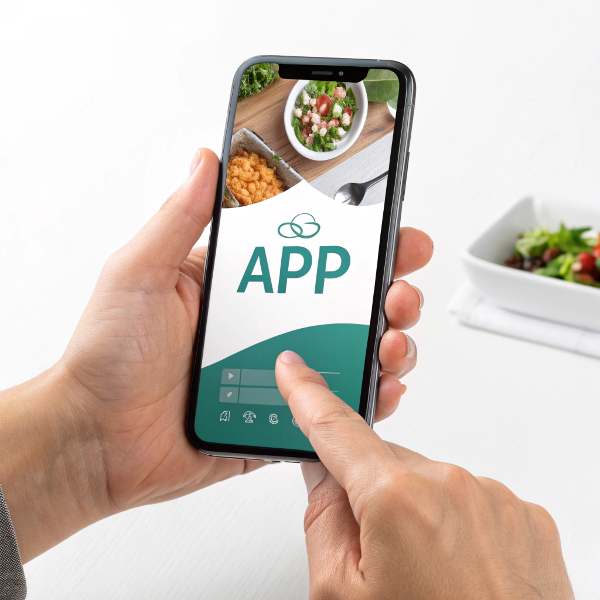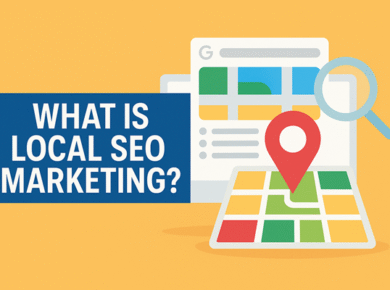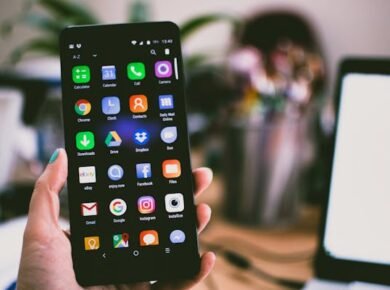Mobile apps (short for mobile applications) are software programs designed to run on mobile devices like smartphones and tablets. These apps can be downloaded and installed from app stores (such as the Apple App Store or Google Play) and serve various functions to enhance the user experience.
Mobile apps can range from simple tools, like calculators and weather apps, to more complex services like banking, social media, gaming, or productivity tools. They are built to be fast, easy to use, and often offer features that are tailored to the specific needs of mobile users, making them accessible anywhere and anytime.
What are the benefits?
Seamless user experience
Mobile apps offer smooth, fast, and personalised interactions, making tasks easier and more enjoyable.
Boost engagement
Push notifications and real-time updates keep users connected and coming back, building loyalty.
Access anytime, anywhere
With a mobile app, users can engage with your brand 24/7, wherever they are.
Check out our Other Services

Key elements of mobile apps
- User interface (UI): The design and layout of the app, including buttons, menus, and navigation, play a key role in how easily users interact with it. A clean, intuitive UI makes the app user-friendly and enjoyable to use.
- User experience (UX): UX focuses on the overall experience a user has with the app, ensuring it’s smooth, engaging, and efficient. A successful UX design reduces frustration and keeps users coming back.
- Performance & speed: An app’s speed and responsiveness are crucial. Slow or glitchy apps can frustrate users, leading to uninstallations. Ensuring that the app runs smoothly is a top priority.
Best practices for mobile apps
Follow these proven strategies to make your mobile app more engaging, attract more users, and boost retention and conversions:

Regular updates and improvements
Regular updates with new features, bug fixes, and performance improvements keep your app functional, competitive, and shows users you're committed to enhancing their experience.

Optimise for battery and data usage
Users appreciate apps that don’t drain their battery or consume excessive data. Ensure your app is optimised for performance to enhance the user experience and prevent any frustration with your app.

Offer easy onboarding
The onboarding process should be simple, guiding users through the app’s features with minimal friction. A smooth introduction increases the chances that users will continue using the app after the first download.

Mistakes to avoid with mobile apps
Avoid these common mobile app mistakes to ensure a seamless user experience, high engagement, and long-term success.
- Neglecting cross-platform compatibility: Failing to ensure your app works seamlessly across multiple devices and operating systems can alienate a significant portion of your audience. Test your app on various devices to provide a consistent experience for all users.
- Overloading the app with features: While it’s tempting to pack your app with as many features as possible, cluttering it can overwhelm users and reduce usability. Focus on core functionalities that meet users’ needs and avoid adding unnecessary complexity.
- Ignoring user feedback: Not listening to your users can lead to missed opportunities for improvement. Regularly collect and analyse feedback to make updates that align with user expectations and fix issues before they impact retention.
Types of mobile apps we offer
We offer a diverse range of mobile apps tailored to different industries and user needs, including:
- Business apps: CRM integration, project management tools, and invoicing systems to enhance efficiency.
- E-commerce apps: Secure shopping platforms with payment gateways, inventory management, and seamless user experiences.
- Healthcare apps: Appointment scheduling, remote consultations, and health tracking for patient care and wellness.
- Education apps: E-learning platforms with interactive courses, virtual classrooms, and Ai-powered tutoring.
- Entertainment apps: Music streaming, video-on-demand, and gaming apps for immersive digital experiences.
- Finance & banking apps: Secure mobile banking, transaction tracking, budgeting tools, and digital wallets.
- On-demand service apps: Taxi services, food delivery, home services, and booking platforms with real-time tracking.
- Ai-powered apps: Chatbots, virtual assistants, and machine learning-driven applications for smart automation.
- Custom apps: Completely tailored to your business needs.
No matter the industry, we create innovative, high-performance mobile apps designed to meet your unique needs and objectives.
FAQ's
Your mobile app questions answered
Is there a difference between an "App" and a "Mobile app"?
Yes, there is a difference. An “app” is a general term for a software application that can run on various platforms, including desktop computers, web browsers, and mobile devices. A “mobile app,” on the other hand, is specifically designed to function on smartphones and tablets, often utilising features like touchscreens, GPS, and cameras for an optimised user experience.
Are mobile and tablet apps the same?
Not always. While many mobile apps are designed to work on both smartphones and tablets, some are specifically optimised for one device type. Tablet apps may have larger, more detailed interfaces to take advantage of bigger screens, while mobile apps are often streamlined for smaller displays and one-handed use. Some developers create separate versions to ensure the best functionality on each device.
Can a beginner make an app?
Technically, yes, but it’s not as simple as it sounds. Building an app requires knowledge of programming languages, user experience (UX) design, security considerations, and compatibility across different devices and operating systems. While DIY platforms are available, they often come with limitations in customisation, performance, and scalability. If you want a high-quality, professionally designed app that meets business or user needs effectively, it’s best to hire an experienced app development company. They can ensure a polished, functional, and secure product that stands out in the competitive app market.
Our mobile app package
What we will do for you
- Mobile app marketing strategy: Development of a bespoke marketing plan tailored to your objectives and target audience.
- App Store optimisation (ASO): Optimisation of app store listings (e.g., Apple App Store, Google Play) to improve discoverability.
- Audience persona research: In-depth analysis of your target audience’s demographics, behaviours, and mobile usage patterns.
- Keyword research for ASO: Identification of high-intent keywords to enhance app store search visibility.
- Creative asset development: Creation of compelling visuals, including app screenshots, promotional videos, and banners.
- Social media promotion: Development of platform-specific content for social media (e.g., Instagram, TikTok, Twitter) to promote the app.
- App install ad campaigns: Setup and management of targeted ad campaigns on platforms like Google Ads, Apple Search Ads, or Meta Ads.
- Push notification strategy: Creation of personalised and timely push notification campaigns to boost engagement and retention.
- In-app engagement plan: Strategies to enhance user interaction through onboarding flows, gamification, or loyalty rewards.
- Influencer and partnership outreach: Identification and collaboration with relevant influencers and brands to promote your app further.
- Competitor app analysis: Evaluation of competitors’ apps and marketing strategies to identify opportunities for improvement.
- Performance tracking setup: Integration of analytics tools (e.g., Firebase, Appsflyer, Google Analytics) to monitor downloads.
- A/B testing for ads and ASO: Testing of ad creatives, app store descriptions, and visuals to optimise conversion rates.
- Performance reporting: Monthly reports detailing app marketing metrics, user acquisition, and actionable insights.
- App review management: Strategies to encourage positive user reviews and ratings while addressing negative feedback.
- Detailed strategy report: A comprehensive document outlining the mobile app marketing methodology and plan of deployment.
What we need from you
-
- App store URL: The URL of your app’s listing on the Apple App Store, Google Play, or other relevant platforms.
- Target audience: Details about your target demographic, including preferences and mobile usage behaviour.
- Business objectives: Specific goals (e.g., increase downloads, improve user retention, or boost in-app purchases).
- Preferred keywords or themes (optional): Any specific keywords, features, or themes you wish to highlight.
- Competitor app (optional): URLs of competitors’ apps or their marketing campaigns for strategy comparison.
- Access details: Access to your app’s analytics tools, ad platform accounts, and app store developer accounts.
- Brand guidelines: Information on your brand’s logo, colours, tone of voice, and any existing content preferences.
If you don’t have specific objectives, keywords, or preferences, provide us with your app store URL and business details, and we’ll conduct tailored research to develop a bespoke mobile app marketing strategy.
Latest news
Updates on apps
In today’s digital landscape, having a strong online presence
Local SEO (Search Engine Optimisation) marketing is a digital
Content creation is a critical component of digital marketing,
Google’s ever-evolving algorithms significantly influence how content is created,
Pay-Per-Click (PPC) marketing is a powerful tool for driving
Content marketing is one of the most effective strategies
Web development is an essential part of running a
Google’s algorithm updates have long been a source of
Staying ahead of Google’s ever-evolving algorithm updates is a
The mobile app market is booming, with billions of










